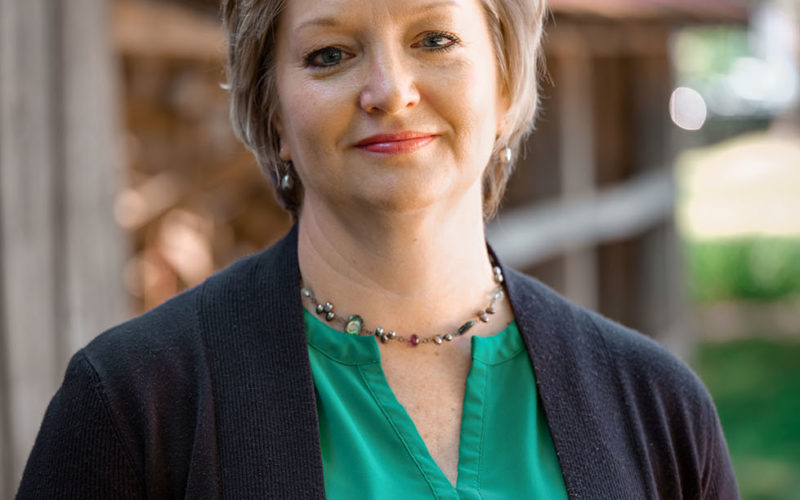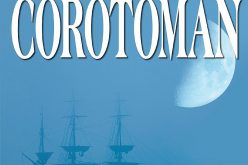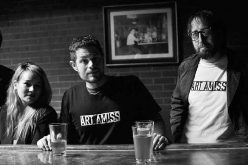“Always remember that, at the core of the Shiloh Museum, is serving the community, telling the stories of everyday people, and being a welcoming place that values every individual. If you do that, the museum will continue to be successful in its mission of helping folks explore Arkansas Ozark history.”
That’s Allyn Lord’s advice to Angie Albright, her successor. Lord will retire June 11 after 16 years as director of the Shiloh Museum of Ozark History in Springdale.
“My best gift will be if folks see Shiloh Museum as a growing, community-centered resource for learning about our shared history, whether that was when we opened in 1968, when we dedicated our current building in 1991, when we celebrated the restoration of the Shiloh Meeting Hall in 2018, or when we hopefully expand to a full city-block-size campus in the near future,” Lord says. “The museum is not about its directors or staff or board. It’s about helping people understand and value the stories of Arkansas Ozark history.”
That said, Albright knows she has big shoes to fill.
“I am honored to be entrusted with the care of the material and cultural history of the Arkansas Ozarks,” Albright said after her appointment was announced at the May 11 Springdale City Council meeting. “This is a special place, both the museum and region. I just love that I get to be a part of this remarkable team of people, and I am committed to ensuring that Shiloh Museum continues to be ‘home’ for our visitors, regardless of where they come to us from.”
Most recently, Albright served as the Shiloh Museum’s development director. Prior to that, she was the director of the Clinton House Museum in Fayetteville. She is actively involved in the Arkansas Museums Association, the Southeastern Museums Conference, and the American Association for State and Local History.
Albright answered these questions for The Free Weekly.
Q. Where did you grow up? Tell me about your mom, dad, aunts, uncles, second cousins once removed and how they shaped you for a life working in historic preservation?
A. I grew up a farm kid in rural southwest Iowa in a small town called Essex. I was the fifth generation of my family to grow up there, and my parents were high school sweethearts. My family is mostly Swedish, as was our town, and those Swedish traditions and qualities are still very prevalent in my family. My parents were well educated and worked really hard to make sure we knew about the big, wide world outside our small town. Both of my parents, as well as my grandparents and extended family, loved to read. We were surrounded by books, music, art, current events, and politics. My parents were also very open minded, so we were exposed to lots of ideas and all kinds of differing viewpoints.
I come from a lot of farmers, teachers, and nurses. I knew from the time I was little I would be a teacher. My grandma taught first grade for over 40 years, and when I was in fourth grade, she let me help her grade papers. I loved to play school with my friends. I did become a teacher and went to college, graduate school and then on to being a professor for many years. If I could afford it, I would just audit everything a university offers for the rest of my life.
My family’s interest in our genealogy and family story, and in fact all history — my dad made us stop at every historic road marker on every trip we took — certainly shaped my own love of history and my appreciation for a sense of place. Every place and every people have a story, and I love learning about a culture through the stories they tell. I have tried to pass on this appreciation of history and culture to my son, and I see my brother and sister teaching their children this, too. We are a pretty nerdy family, and we’ve fully embraced it.
Furthermore, my aunt lives in Northwest Arkansas and is known statewide for her work as an historian and historic preservation advocate. She has introduced me to so many people and ideas that gave me a real foundation in Arkansas history.
Q. What was your first interaction with the Shiloh Museum?
A. Many years ago I came to the museum for a visit with family visiting from out of town, but my first real impression of Shiloh was from my first year as director of the Clinton House Museum. I called on Allyn Lord for museum director advice, and as I have learned over and over, Allyn has always had an open door for other museum professionals and people new to the field. She’s nurtured and befriended so many of us and made a profound impact on the museum sector in Northwest Arkansas with her wisdom, experience, and sense of humor.
Q. How do museums continue to bring in audiences and serve the community in this time of everything digital?
A. Our country is currently in the midst of a real reckoning around so many social issues, and museums are on the forefront of addressing those issues internally in our organizations but also in acting as catalysts for engagement of all kinds in our communities. Museums are so much more than static exhibits. History museums are experts in using diverse strategies to help people understand culture, who we were a long time ago. We use those same strategies to bring people together to increase cultural understanding in our communities today. Despite the dominance of all things digital in our world, people still crave connection and interaction, and museums offer that.
Q. What is your very first goal when you sit down in the “big chair”?
A. On June 12, my first big goal will be to develop a plan for a full reopening and communicating that plan to the public. Like museums and cultural attractions everywhere, we are going to have to be creative and diligent about bringing back our traditional audiences and developing new ones. This will include incorporating our work into all of the other exciting things happening in Springdale and across the region.
__
BECCA MARTIN-BROWN
bmartin@nwadg.com
—
Go & Do
Shiloh Museum
Of Ozark History
When: 10 a.m.-5 p.m. Monday-Friday
Where: 118 W. Johnson Ave. in Springdale
Cost: Admission is free
Information: (479) 750-8165 or shilohmuseum.org






